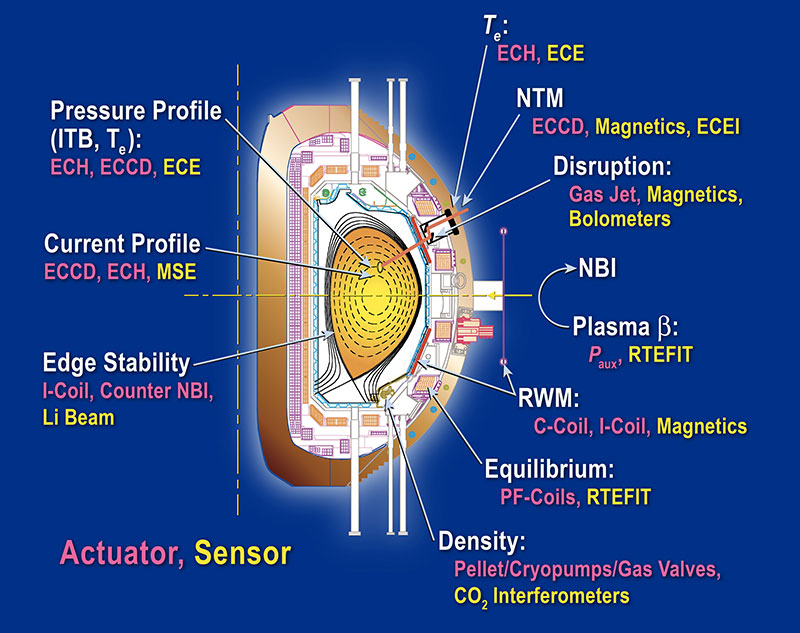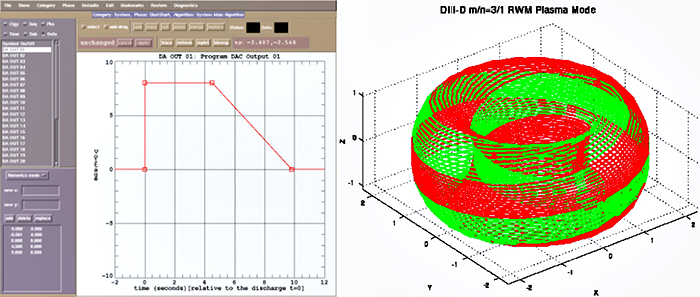Plasma Control
The mission of the DIII-D Control group at General Atomics is to develop the control knowledge and solutions needed to enable tokamaks to operate disruption free with required levels of robust high performance. Development of integrated plasma control (IPC), a systematic approach to model-based design and controller verification, has enabled successful experimental application of high-reliability control algorithms requiring a minimum of machine operations time for testing and tuning.

The IPC approach is characterized by control designs using physics-based models validated by experimental results, confirmation of performance in the presence of non-ideal system dynamics, and verification of both controller implementation and performance by operating actual control software and hardware against simulations. Use of validated physics-based models is essential in order to allow high confidence extrapolation to related regimes in devices which do not yet exist or which have not produced those regimes.

As part of this effort, GA has supplied design resources, technologies, and integrated systems for control of magnetic fusion plasmas to government and private laboratories worldwide. These include:
- National Spherical Torus Experiment (NSTX) at Princeton Plasma Physics Laboratory
- Pegasus Toroidal Experiment and Madison Symmetric Torus (MST) at the University of Wisconsin-Madison
- Experimental Advanced Superconducting Tokamak (EAST) at the Institute of Plasma Physics in Hefei, China
- Korea Superconducting Tokamak Advanced Research (KSTAR) at the National Fusion Research Institute in Daejeon, South Korea
- Keda Torus Experiment (KTX) at the University of Science and Technology of China in Hefei
- Mega Amp Spherical Tokamak (MAST) at Culham Centre for Fusion Energy, Oxfordshire, U.K.
Because of their demonstrated utility, GA plasma control solutions will form an integral part of ITER when it begins operations in the 2020s. ITER’s size – several times larger than existing tokamaks – presents unique plasma control challenges that GA researchers at DIII-D are working to overcome.